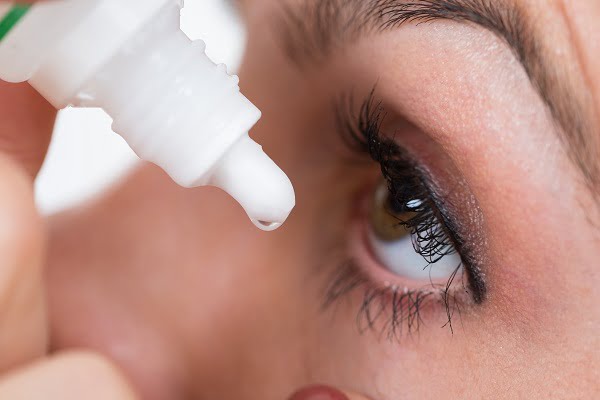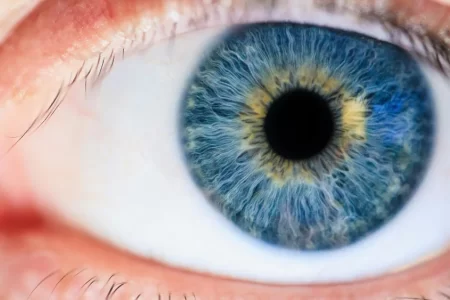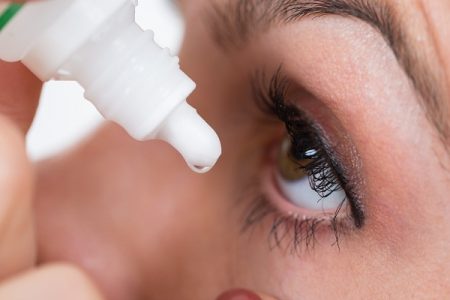Treatment for Dry Eyes
- Updated on: Oct 21, 2024
- 4 min Read
- Published on Apr 19, 2021


Dry eyes can make you feel uncomfortable. If you have dry eyes, your eyes may experience a burning or stinging sensation. You may experience dry eyes more in certain situations, such as on an airplane, in an air-conditioned room, while riding a bike or when you are looking at a computer screen or a TV for extended time.
After your doctors have diagnosed the condition, he or she will guide you through the treatment. Read about diagnosing dry eyes.
Treating your dry eyes
Treatments for dry eyes help you become more comfortable. Primarily, there can be two types of treatments.
- lifestyle changes
- medicines in the form of eyedrops
You’ll likely need to consider them indefinitely to control the symptoms of dry eyes and relieve you from the extreme discomfort these symptoms can sometimes cause. Read about the signs and symptoms of dry eyes.
Treatment for dry eye syndrome helps you control the symptoms only. There’s no cure for it. Some people may experience recurring episodes for the entire life.
The treatment for dry eye syndrome depends on what causes these symptoms:
- Is it due to evaporation of the tears too quickly?
- Is it due to decreased production of the tears by your eyes?
- Is it due to some medication and its side effects?
- Is it due to an underlying medical condition or disease?
If your dry eye syndrome is caused by some medical condition, your doctor will prescribe appropriate treatment or will refer you to a specialist for that disease. Sometimes, not using the medicine is a solution if alternatives are available.
You can also help prevent dry eye syndrome or relieve the symptoms by taking appropriate measures if some environmental condition is causing the problem. This may include keeping your eyes clean and consuming a healthy diet.
In most cases, with occasional to mild dry eye symptoms, over-the-counter eye drops (which are artificial tears) are sufficient and help you manage the symptoms. If your symptoms recur or are more serious, your doctor will consider other options.
Treating through Lubricants
If you have mild to moderate dry eye syndrome, you can most likely be treated using lubricant treatments. These lubricants consist of drops, gels and ointments, and are often artificial tears. These are used to replace the missing tears from your eyes.
However, these artificial tears don’t contain the antibodies, vitamins and other nutrients that are present in natural tears.
Many different types of lubricants are available in the market and sometimes your doctor may use multiple different compounds to have the best effect.
These different artificial tears may include such as:
- Preservative-free eye drops
- Eye ointments
- Oily tear eye drops
Anti-inflammatory treatments
If you have severe or long-term dry eye condition, the use of only lubricants may not help. The underlying problem with long-term dry eye syndrome is inflammation.
Your doctor will consider anti inflammatory treatments in such cases. These may include:
- Corticosteroid eye drops
- Corticosteroid ointments
- Ciclosporin eye drops
- Ciclosporin eye drops
- Oral tetracyclines
Eye inserts
Eye inserts work similar to artificial tears but these are used when artificial tears do not work much and you have moderate to severe condition. They look like a grain of rice.
You place the insert between your lower eyelid and your eyeball once daily. The insert dissolves in the eye slowly and releases lubricant into your eye.
Eyedrops made from your blood (Serum eye drops)
These are called autologous blood serum drops. Serum eye drops may are used only in very rare cases where all other treatment options fail. These are special eye drops made using components of your own blood or blood taken from a donor.
This option is considered if you have severe dry eye symptoms that don’t respond to any other treatment. In order to make these eyedrops, a sample (one unit) of your blood is taken and the red blood cells are removed from it. It is then mixed with a salt solution.
In order to meet to necessary quality standards, the process can take several months before the treatment is available for use by a patient.
Surgery
Surgery is an option if you have severe dry eyes that fail to respond to other forms of treatment.
There are two types of surgery that are used to treat dry eye syndrome:
Punctal occlusion
It involves using tiny plugs called punctal plugs to close your tear ducts. This causes your tears not to drain into the ducts. Your eyes will remain moist.
Salivary gland autotransplantation
It is not a common procedure and is used only in rare cases. It involves removing some of the glands that produce saliva from your lip and placing them under the skin of your eyes. The saliva produced by the glands replaces the tears.












